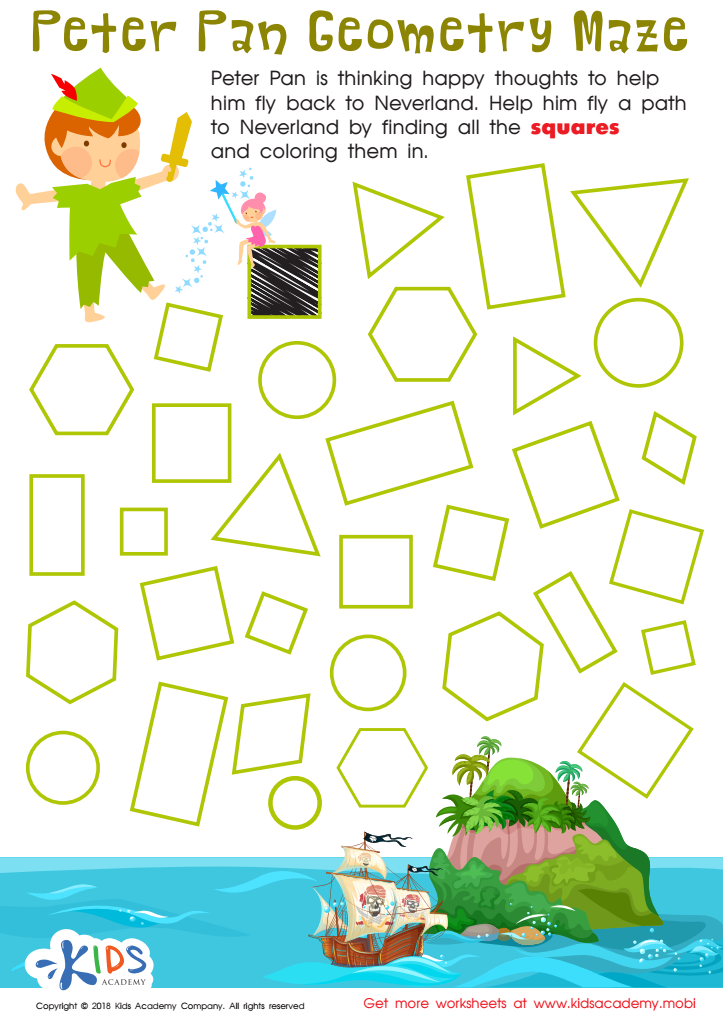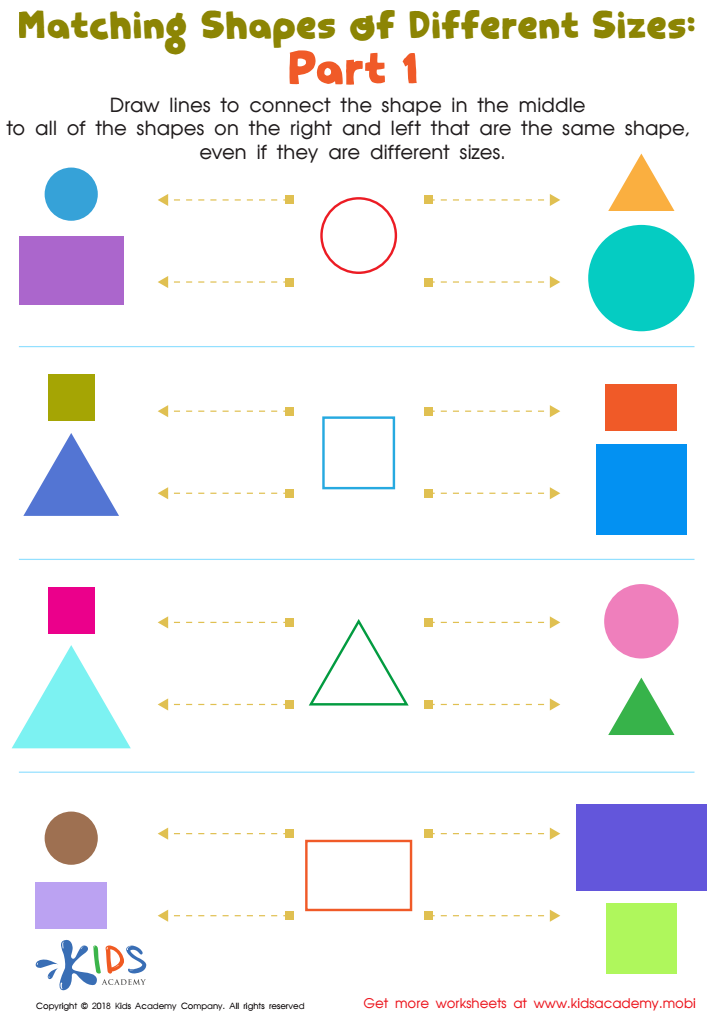Reading comprehension Normal Geometry Worksheets for Ages 3-9
4 filtered results
-
From - To
Make learning geometry fun and engaging for young minds with our Reading Comprehension Normal Geometry Worksheets designed for children ages 3-9. Developed to blend fundamental geometric concepts with reading skills, these worksheets enhance comprehension while introducing kids to shapes, patterns, and spatial understanding. Perfect for early learners, our meticulously crafted activities promote critical thinking and problem-solving abilities. Whether at home or in the classroom, these printable worksheets provide an interactive tool to support and reinforce educational development in an enjoyable way. Explore our diverse collection and watch as your child's love for math and reading blossom together.


Peter Pan Worksheet


Hansel and Gretel Geometry Maze Worksheet


Geometry: part 1 Worksheet


Matching and Sorting for Kindergarten: Assessment 1 Worksheet
Reading comprehension and understanding basic geometry are foundational components of a child's early education, each playing a crucial role in their cognitive and academic development. For children aged 3-9, these skills form the bedrock of analytical thinking, problem-solving abilities, and a lifelong love for learning.
Firstly, reading comprehension is essential as it goes beyond recognizing words to understanding and interpreting meaning. This skill fosters imagination, enhances vocabulary, and builds a capacity for empathy by exposing children to diverse perspectives and experiences. It also supports other academic areas, such as math and science, by enabling children to follow complex instructions and understand problems correctly.
Meanwhile, basic geometry introduces children to shapes, sizes, spaces, and spatial relationships. Understanding geometry during these formative years can significantly enhance a child's ability to recognize patterns, which is a critical thinking skill applicable in numerous aspects of life, including future academic pursuits in fields like engineering, architecture, and technology.
Incorporating reading comprehension and geometry into early childhood education develops well-rounded learners equipped with the skills needed to navigate and succeed in an increasingly complex world. Therefore, parents and teachers should prioritize these areas to lay a strong, interdisciplinary foundation for all future learning.
 Assign to My Students
Assign to My Students
















